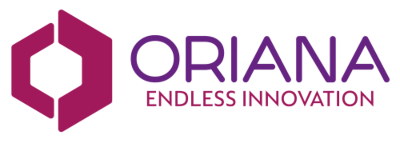Organizations have been tied up in change forever, and in the thick of it all, we find the CIO. Now change is the order of the day as ways of working are significantly altered, perhaps permanently. The world pandemic means that changes on the to do list are now hot topics.
For many organizations business transformation is now at the level of survival – think large retailers, or airlines. Then there are NGOs and governments which need new apps right now! These include health care apps and track-and-trace covid-19 detection. Perhaps they would be ready in six to ten months of normal development time, with conventional programming. But that’s too long.
And for just about every other business and organization, the massive tilts in markets have created instant need for new strategic models, with new apps to deliver them. Damned if you rush into the risk of adding new apps to the system, damned if you delay.
There is a way around.There always is. It comes in the form of a low-code platform from Oriana. Oriana provides enterprise grade solutions with step-by-step roll out, and the ability to sanity check at every point. That means enabling change quickly,while ensuring there will be no negative impacts. Many organizations are finding that the Oriana low-code platform is the answer both to their planned digitalization path, and the current urgency of change triggered by the global pandemic.
1. Democratizing development
Democratizing development is not an abstract ideal, but an entirely practical way for step-by-step overhaul of a business. Oriana allows the empowerment of employees, even outside of IT, to deliver apps. The business users work with Oriana templates(approved by the IT department), customizing processes to exactly match needs,without pro-developer support. Processes of low-to-moderate complexity can easily be designed, trialed, altered if necessary, and then put to work in a fraction of the time of conventionally-coded applications.
With one app or workflow solution proven, it’s easy to turn to the next use case and move on through the organization, with the added advantage of buy-in from heads of departments,who recognize that their specifications are being met.
2. Supporting innovation
Supporting innovation in products or services has never been more vital, and with Oriana, unique apps for specific business needs can be easily developed.There is a belief amongst some CIOs that low-code is not actually enterprise grade and is unsuitable for mission-critical applications. This is not the case, as can be seen from the many thousands of enterprise apps created on low-code platforms. Oriana’s Low-Code Platform is in use across a wide spread of industries where mission-criticality is key. Many of our clients are companies with in excess of 5,000 employees, and highly complex workflow processes – for example banks, utilities companies, government departments, and helplines.
Innovation is further supported by Oriana using SQL as the customization language, the most widely understood tool for data manipulation, approachable by the maximum number of users.Other low-code platforms are far less accessible, due to the use of abstraction layers. These are supposed to simplify use, but in reality make access more difficult. The Oriana Low-Code Platform allows the manipulation of data directly in SQL. Simple,and transparent.
And if you’re not currently thinking about CPaaS – Communications Platform as a Service – then we’re pretty sure you will be soon. It’s the edge of innovation which will provide a host of new and cost-effective options which provide a Contact Center-like experience for customers, but without the need to maintain a fully-staffed call-center. Low-code solutions will increasingly offer such functionalities, swiftly and effectively.
3. Empowering IT departments
Who knows best about how departments within an organization operate? – The people who do the work,understand the processes, and are responsible for the consequences of any mistakes. So enabling departmental IT to deliver apps is a smart move. Each business area best knows its own needs, but unlike with ‘Shadow IT’ vendors,departmental IT is not silo-ed, and can therefore work towards the ‘common good’. The Oriana Low-Code Platform enables the rapid design and proving of apps, which once operational, pave the way for further steps. Each department learns and benefits from the experience of others, working across a common platform, even though the business use cases may be radically different.
This empowering of IT departments encourages teams to be innovative, and get to grips with true strategic needs, rather than firefighting. Strategic thinking and ownership of the means of solving issues innovatively have always been of high value. Now,more than ever.
4. Avoiding mistakes and improving efficiency
‘Take risks!’ business leaders are often told (usually by advisors who have little to lose), but as a CIO, taking risks is the absolute last thing you’ll contemplate. And yet the business has to move forward and innovate at speed. That could be risky.
The Oriana Low-Code Platform allows step-by-step de-risking where – if desired – one departmental issue is solved at a time. The beauty of Effector is that the platform is infinitely customizable, and modular. There is a huge library of existing business application templates created for almost any organizational scenario,such as CRM, Document Management, Procurement, Customer Service, and Tender Management – all ready to be changed to the exact needs of your organization.
The specter of risk often hovers next to CIOs. So the possibility of limiting risk by mitigating mistakes is attractive. The sandbox approach enabled by Oriana’s range of low-code apps allows ‘mistakes’ to be made within the constraints of departmental trialing. Problems are ironed out before going live, and a mistake in one part of the organization is not repeated and multiplied.
It’s true that with innovation, risk comes with the territory. It’s also true that people do make mistakes, but Oriana keeps the lid on miss-steps and makes them easy to correct. Organizations clearly need to focus on customer engagement and experience, but not at the expense of creating unreliable systems. Oriana is workflow-based, and when coupled with Robotic Process Automation from partner UIPath, helps remove the tedium and therefore error-prone activities of humans doing repetitive work.That’s clearly the more efficient approach.
5. Speeding up development
Producing more apps,more quickly is the name of the game for most organizations. Oriana templates offer proven delivery of consistent processes within a company. For example, once the first application is up and running, many of the basic elements and integration features are the same across departments. Managing access rights, licenses or inheritance are taken care of in the first iteration and don’t need to be re-invented for subsequent apps – they are already there,sitting ‘on top’ of the ERP system. Having a standard tool which can be applied to all new applications greatly speeds development.
Equally important, the Oriana Low-Code Platform integrates with existing apps. These are the many patches added, often over years, which burden the ERP. Consolidating these onto a single platform allows business needs to be more flexibly answered, and lets the ERP get on with doing what it was designed to do. Result – swifter development, across the board.
6. Cutting costs
“Do more, spend less,” is a mantra everyone is familiar with. But is it realistic? One place that Oriana scores is in decreasing the reliance on professional coders. At Oriana we have the greatest respect for the skills of Pro-coders, but often up to 50% of their development time is spent doing the most basic work, of setting up apps. Oriana has all of the basics already in place, allowing Citizen Developers within the organization to get their hands on processes which they uniquely understand. Pro-coders may well need to be involved in the fulfillment of a project, but wasting their talents and salaries on the basic set-up is not cost-effective. And once any app is up and running within Oriana managing rights, licenses and so on becomes very easy for additional apps.
Re-inventing the wheel, not
So why should enterprises and organizations adopt the Oriana low-code solution?
Because why would anyone wish to re-invent the wheel, again and again?



